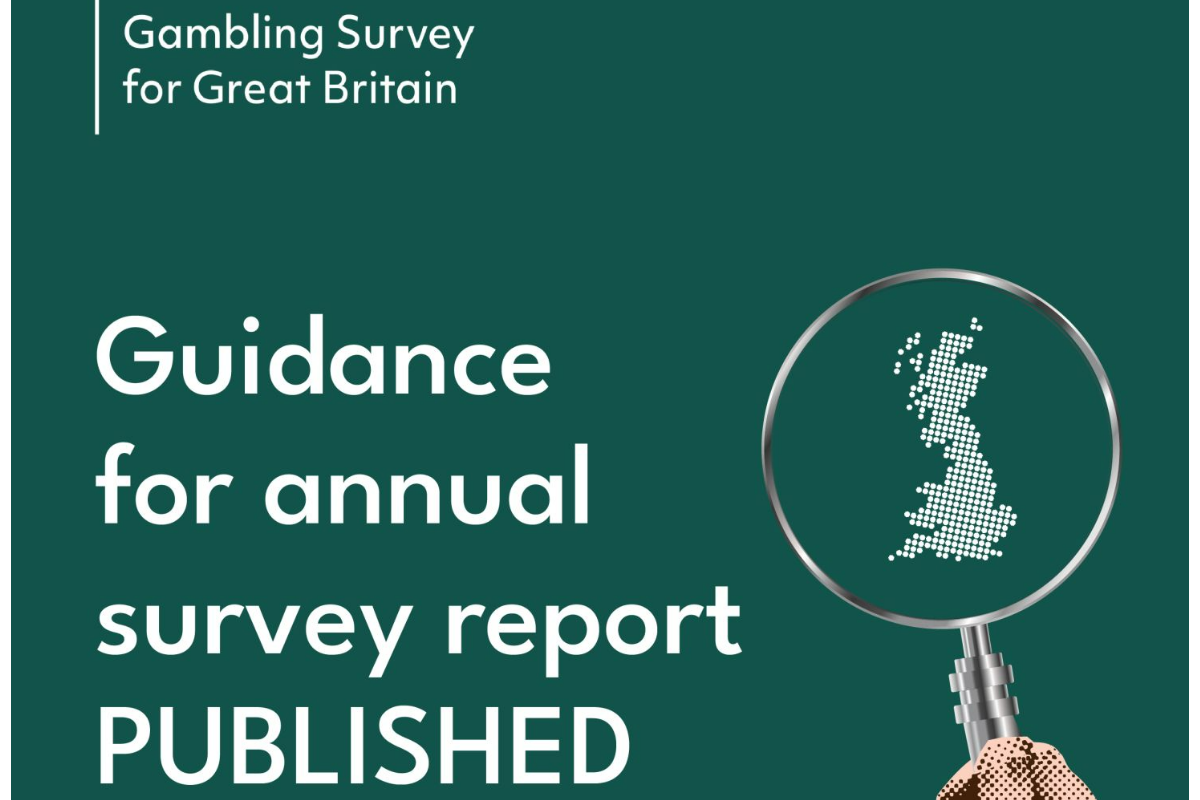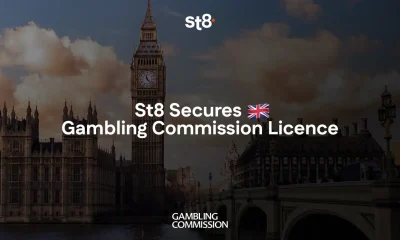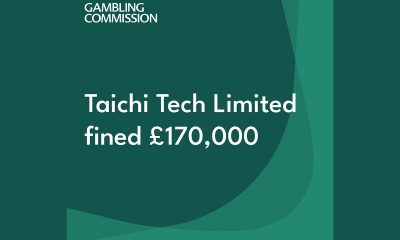Compliance Updates
Guidance on using statistics from the Gambling Survey for Great Britain

The guidance set out here is designed to help anyone who wishes to use data from the Gambling Survey for Great Britain (GSGB) to ensure it is reported correctly, this could include policy makers, academics, the gambling industry, the media, members of the public and any other interested users. It is produced in accordance with the Code of Practice for Statistics, Value 3.4 Clarity and Insight.
We have published this guidance because the official statistics from the GSGB are new and they are collected using a different methodology than previous official statistics. The guidance takes on board the recommendations from Professor Sturgis’s independent review of the GSGB and his analysis of the impact of the change in methodology.
We are aware that official statistics on gambling have previously been used in ways that they were not intended and, in some cases, the data was misused. Therefore it is important that users understand how the new official statistics from the GSGB can be used, what they should not be used for and where some caution should be applied. There are slightly different approaches for statistics relating to gambling participation and the consequences of gambling because of the smaller base sizes and greater margins of error for the statistics relating to the consequences of gambling.
Gambling participation
The GSGB can be used:
- to look at patterns within the data amongst different demographic groups
- to assess future trends and changes in gambling participation, measuring changes against the 2024 baseline
- to compare patterns in gambling participation for England, Scotland and Wales and regionally where sample sizes allow.
The GSGB can be used with some caution (until further work is completed):
- to provide estimates of gambling participation amongst adults (aged 18 and over) in Great Britain
- to gross up gambling participation estimates for the whole population.
The GSGB should not be used to provide direct comparisons with results from prior gambling or health surveys.
Consequences of gambling
The GSGB can be used:
- to look at patterns within the data amongst different demographic groups
- to assess future trends and changes in consequences of gambling, measuring changes against the 2024 baseline
- to compare patterns in consequences of gambling for England, Scotland and Wales and regionally where sample sizes allow
- to describe the range of consequences that someone may experience as a result of someone’s own gambling and as a result of someone else’s gambling.
The GSGB can be used with some caution (until further work is completed):
- to provide estimates of Problem Gambling Severity Index (PGSI) scores amongst adults (aged 18 and over) in Great Britain
- to provide estimates of the prevalence of consequences of gambling amongst adults (aged 18 and over) in Great Britain.
The GSGB should not be used:
- to provide direct comparisons with results from prior gambling or health surveys
- as a measure of addiction to gambling
- to calculate an overall rate of gambling-related harm in Great Britain
- to gross up the prevalence of problem gambling or the consequences of gambling to whole population (until further work is completed).
Comparability with previous surveys
Direct comparisons between the GSGB and previous surveys should not be used to assess trends over time
Due to differences in the way data for the GSGB is collected in comparison to prior gambling or health surveys, the GSGB is not directly comparable with results from previous surveys and direct comparisons should not be used to assess trends over time.
That said, some limited comparisons are useful to assess differences between study methodologies. All surveys are subject to a range of potential biases which may affect results. The GSGB, the prior health surveys and gambling surveys are no different.
The changes that have been made to the GSGB are outlined in the following table and include:
- collection mode
- questionnaire content
- age coverage.
| Factor | Gambling Survey for Great Britain | Health Survey for England (HSE) | Quarterly Telephone Survey |
|---|---|---|---|
| Collection mode | Self completion: Push-to-web survey with paper-based alternative | Interviewer led with self completion elements: Face-to-face (gambling questions asked in a self completion module but with interviewer and other household members present) | Interviewer led: Telephone |
| Questionnaire content | Gambling | Health | Gambling |
| Age coverage | Adults aged 18 and over | Adults aged 16 and over | Adults aged 16 and over |
| Sample size | 10,000 (Year 1) 20,000 (Year 2 onwards) |
7,100 (HSE 2018) | 4,000 per annum |
| Response rate | 19% (Year 1) | 59% (HSE 2018) 36% (HSE 2022) |
Data currently unavailable |
| Geographic breakdown | England, Wales and Scotland | England | England, Wales and Scotland |
The annual GSGB report will be published 25 July 2024 and will represent the first year of a new baseline, against which future annual data from the GSGB can be compared. Smaller and more frequent publications will be available on a quarterly basis based on the data collected in the previous wave only. These ‘wave specific’ publications can be used to compare wave on wave trends throughout the year.
Impact of new methodology
There is a risk that the GSGB may overstate some gambling behaviours and therefore estimates should be used with some caution.
Further investigation of the possible reasons for this is needed to better quantify the scale and direction of impact upon the GSGB estimates and until this is completed, the statistics relating to the prevalence of problem gambling or the consequences of gambling should not be grossed up to whole population.
Whilst the move to a push-to-web survey was endorsed by Professor Patrick Sturgis in his independent review of the GSGB methodological approach and will enable to better detection and understanding of patterns and trends in gambling behaviour, he also urges due caution with the new statistics, “being mindful of the fact that there is a non-negligible risk that they substantially over state the true level of gambling and gambling harm in the population”.
There are several potential reasons for this increase in PGSI estimates as outlined by Sturgis in his review. This may relate to the lower response rates that the push-to-web design achieves. People who gamble, and those who gamble more heavily, may be more likely to complete the GSGB than those who do not gamble. As PSGI scores are higher for those with more gambling engagement, a lower response rate, potentially over representing those who gamble, would serve to increase reported PGSI scores.
Alternatively, prior surveys may have under-estimated PGSI scores and/or underestimated online gambling behaviours as a result of socially desirable responding. Sturgis noted that “there [were] good grounds to suggest the presence of an interviewer (as used by the [British Gambling Prevalence Survey (BGPS)] BGPS and [Health Survey] HS series) induces a downward bias on estimates of the prevalence of gambling harm”.
It may also be that PGSI scores have actually increased in the population over time. Online gambling is strongly associated with elevated PGSI scores and gross gambling yield from online gambling has increased substantially since 2018. These changes in the gambling market could affect the PSGI scores estimated in the survey. All these things could be true, either alone or in combination.
In summary, as Sturgis notes, the two studies which have investigated possible factors for these changes in estimates were unable to come to a definitive estimate about the magnitude of the errors, and therefore uncertainty remains around which estimates (the GSGB or prior studies) are closer to the truth. Further investigation of the possible reasons for this is needed to better quantify the scale and direction of impact upon the GSGB estimates and until this is completed, the statistics relating to the prevalence of problem gambling or the consequences of gambling should not be grossed up to whole population.
Be careful reporting base numbers
Correctly reference whether statistics are based on all participants, or whether they are a subset of all participants such as people who have gambled in the last 12 months or participants who completed the online version of the survey.
The GSGB asks a range of questions some of which are applicable to all participants and some which are only applicable to people who have gambled.
Care should be taken when reporting statistics, particularly those relating to the PGSI to make sure you are correctly stating if the results are based on the views of all participants, or if they are based on people who have gambled. This is an area where we have previously seen misreporting.
This distinction is important as the first group includes people who have not gambled on any activity in the past year whereas the second group is based only on people who have gambled in the 12 months. In the report we have also included a third group which excludes people who have only taken part in lottery draws. This is because lotteries are so much more popular than any other form of gambling, so it can mask patterns of what’s going on with other types of gambling. For this reason, in the report we sometimes present findings excluding the people who have only taken part in a lottery draw and not taken part in any other type of gambling.
Through our stakeholder engagement we know that stakeholders are interested in multiple ways of presenting the data, for example at a population level including people who do not gamble and based on people who have gambled.
It is also worth noting that new questions in the GSGB about the wider consequences of gambling are all presented as a proportion of participants who have gambled in the past 12 months or as a proportion of participants who know someone close to them who gambles, so should be reported in this way. This is an example of how you should report the data:
“Of those who know someone close to them who gambles, x percent had experienced relationship breakdown because of someone else’s gambling.”
To ensure we can include all of the relevant content within the GSGB, core questions are asked on both the online and paper version of the survey whereas some topical or modular questions are only asked on the online version of the survey. The Commission will clearly label any statistics which are based on online responses only, and users should do the same.
Survey estimates
All surveys produce estimates rather than precise figures, users should be aware of confidence intervals.
The GSGB, in common with other surveys, collects information from a sample of the population. Consequently, statistics based on the survey are estimates, rather than precise figures, and are subject to a margin of error, also known as a 95 percent confidence interval. It would be expected that the true value of the statistic in the population would be within the range given by the 95 percent confidence interval in 95 cases out of 100. Confidence intervals are affected by the size of the sample on which the estimate is based. Generally, the larger the sample, the smaller the confidence interval, which results in a more precise estimate.
Confidence intervals should be taken into consideration by users, this is particularly true for PGSI estimates where base sizes can be small. We have provided confidence intervals for PGSI estimates within the data tables. Where differences are commented on in the annual report, these reflect the same degree of certainty that these differences are real, and not just within the margins of sampling error. These differences can be described as statistically significant.
Annual versus wave specific data
In a typical year there will be four wave specific publications from the GSGB plus an annual publication. Where possible, the annual data should be used as the priority with wave specific data being used when you want to look at patterns of gambling participation within a year, or where modular questions have only been asked in certain waves.
The GSGB collects data continuously throughout the year. Survey data will be available:
- on a quarterly basis via wave specific publications
- annually where data for the calendar year will be combined to provide a more detailed breakdown.
Annual datasets will be published to UK Data Service (opens new tab).
We recommend using annual data as the default as this will be based on a large sample size (10,000 in Year 1 and 20,000 from Year 2 onwards) and will allow for more analysis at sub population level. This is also how we will track trends over time. Annual publications will include findings on the consequences of gambling.
Wave specific data should be used if you need data for a specific time period, and to track trends or patterns within a calendar year. These publications will focus predominately on participation in gambling in that time period.
Language
Use a person centric approach when reporting statistics about gambling.
Do not stigmatise or victimise those people experiencing adverse consequences from gambling.
Do not describe PGSI as a measure of gambling addiction.
The language we use matters. People who gamble are defined by more than their actions when they gamble. That is why we recommend a “person-centric” or “person first” approach. Whilst taking this new approach may use more words, it is important in lowering stigma and barriers to people seeking help for gambling addiction.
For example, instead of writing “x percent of gamblers…”, you can write “x percent of people who gamble…”.
The Problem Gambling Severity Index (PGSI) consists of nine questions which measure both behavioural symptoms of gambling disorder and certain adverse consequences from gambling. The PGSI should not be confused with a measure of gambling addiction. More information on how the PGSI is measured can be found here.
Wider evidence base
The GSGB is one source of data in the Commission’s wider evidence base.
The Gambling Commission uses a range of data, research and insights to inform the decisions that we make and provide advice to the Government about gambling behaviour and the gambling market. To be the most effective regulator possible, we require a robust evidence base. The GSGB forms one source of evidence for our evidence base and should be considered alongside a wealth of other evidence and information which we use to fill our evidence gaps and priorities 2023 to 2026.
If statistics are used incorrectly
We encourage people to use our statistics to support understanding of important issues related to gambling.
We expect that anyone using our official statistics should present the data accurately and in accordance with the guidelines presented here. This includes ensuring that the data is not taken out of context, manipulated, or presented in a way that could materially mislead others.
-

 Asia7 days ago
Asia7 days agoSkyesports Wraps Up Gaming Thiruvizha – Chennai Edition With 17,000+ Fans in Attendance
-

 eSports7 days ago
eSports7 days agoEsports Set To Take Over the Capital as BLAST Premier London Open Heads to Wembley Arena
-

 Africa6 days ago
Africa6 days agoGhana’s NLA Introduces New Sticker to Clamp Down on Illegal Lotto Operators
-

 Asia6 days ago
Asia6 days agoPAGCOR: Online Gaming fuels nation-building, but illegal sites pose risks
-

 Africa6 days ago
Africa6 days agoRise & Hustle partners with Altenar to power its new sportsbook offering
-

 Eastern Europe6 days ago
Eastern Europe6 days agoDigitain Strengthens Romanian Market Presence Through KingCasino Partnership
-

 Central Europe6 days ago
Central Europe6 days agoCT Interactive Announces Strategic Partnership with Ecasino
-

 Latest News6 days ago
Latest News6 days agoCasino Playa de las Américas Implements JCM’s ICB Technology



























